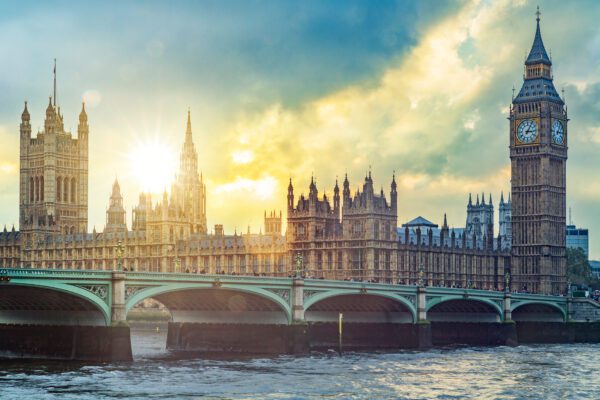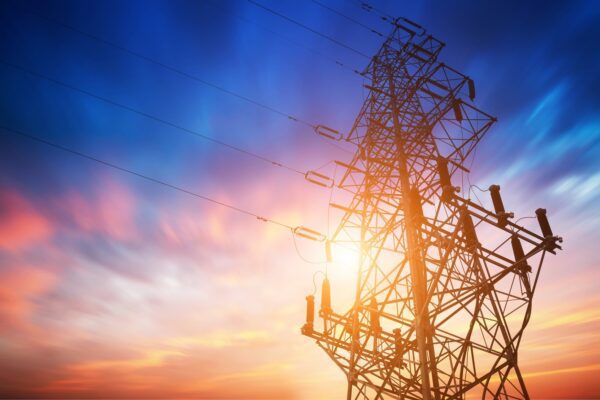
Election 2024: Key Energy and Environmental Pledges Summarised
As the UK general election approaches and party manifestos are published, our market analysis team has summarised the major developments concerning energy and the environment.
On 22 May 2024, Rishi Sunak announced he had requested the King’s permission to dissolve parliament and called for a general election. The 2024 United Kingdom general election is scheduled for Thursday, 4 July 2024. During the pre-election period, government activity is restricted to ensure public funds are not used for campaign purposes and to maintain civil service impartiality.
As the election approaches and party manifestos are published, our market analysis team has summarised the major developments concerning energy and the environment, focusing on the pledges of the five parties leading in the polls as of the date of this article.
At a glance
The main policies featured in this blog:
Net-Zero by 2050
Labour
A target for a 100% net-zero energy grid by 2030, though the lack of a clear industrial strategy for producing the parts required for wind and solar domestically raises concerns about whether this would be reached.
Conservatives
Committed to achieving net-zero by 2050, but has been criticised for inconsistent policies that put the target at risk.
Reform UK
Would scrap all net-zero targets.
Liberal Democrats
Move forward the UK’s net-zero targets to 2045, including appointing a Chief Secretary for Sustainability to the Treasury to join up work towards net-zero across departments.
Green Party
Would push the UK’s net-zero targets forward to at least 2040.
Renewables
Labour
Pioneer floating offshore wind and fast-track 15 GW of capacity, quadruple offshore wind to 55 GW by 2030, and double onshore wind capacity to 35 GW by removing some of the current restraints on onshore wind. A tripling of solar capacity (currently ~16GW) has also been promised, in addition to investment in marine energy generation like tidal generation.
Conservatives
Committed to expanding both the UK’s onshore and offshore wind generation. This includes a new £1.1 billion fund to support manufacturing capabilities and boost supply chain resiliency, though the lack of an industrial strategy does little to alleviate concerns about supply of key components necessary to expand wind generation.
Reform UK
The only renewables they mention is tidal energy, stating that wind energy is not cheaper than fossil-fuelled generation (how this has been calculated is not clear).
Liberal Democrats
Set a 2030 target for 90% of UK electricity generation to be renewable. This is to be achieved through expanding incentives for household solar panels, including guaranteeing a fair price for electricity sold back to the grid, removing restrictions on new wind and solar, and supporting investment and innovation in tidal and wave power.
Green Party
Targetting a net-zero energy grid by 2030, achieved through the delivery of 80GW of offshore wind, 53GW of onshore wind, and 100GW of solar by 2035. Improve incentivies for renewable investors by changing the contract for difference strike price to accurately reflect supply chain costs, and for solar in particular by requiring all new households to have solar panels and improved financing for household energy solar (grants/green mortgages). Investment into geothermal, tidal, and other renewables has also been promised.
Fossil Fuels
Labour
Maintain a strategic reserve of gas-fired generation facilities for periods of low renewable generation. Though they will not expand oil and gas licensing in the North Sea, none of the existing licenses will be revoked.
Conservatives
Supports the expansion of oil and gas licensing in the North Sea, intending the pass legislature that requires annual licencing rounds. However, also includes plans to phase out unabated gas fired generation by 2035.
Reform UK
Massive expansion to North Sea gas and oil licensing, believing that it is necessary to achieve the UK’s energy security.
Liberal Democrats
Implement the UK’s G7 pledge to end fossil fuel subsidies whilst “ensuring a just transition”, suggesting no new licensing for the North Sea.
Green Party
Cancel recent fossil fuel licences such as for Rosebank and stop all new fossil fuel extraction projects. The removal of all subsidies for oil and gas, and the introduction of a carbon tax on all fossil fuel imports.
Nuclear
Labour
Get new nuclear projects at Hinkley and Sizewell over the line, extend the lifetime of existing plants, and back new nuclear, including small nuclear reactors.
Conservatives
Ensure that the existing Sizewell C and Hinkley Point C nuclear reactors are completed, in addition to approving two new fleets of Small Modular Reactors (SMRs) within the first 100 days.
Liberal Democrats
Build a fleet of 15 Small Modular Reactors.
Green Party
Phase out nuclear energy on the premise that they are unsafe and more expensive than renewables.
Storage and infrastructure
Labour
Work with industry to upgrade transmission structure and to speed up connection times for new infrastructure; grid connections are often in the late 2030s, stalling new projects or incentivising investors overseas.
Conservatives
Build the first two carbon capture and storage clusters, based across North Wales and, the North West of England.
Liberal Democrats
Invest in energy storage, including green hydrogen, pumped storage, and battery capability. Build more electricity interconnections.
Green Party
Invest in interconnectors to more closely connect our grid with that of European neighbours. More investment into grid level storage to allow for a netzero energy grid without the use of baseload capacity like nuclear. Expand research into potential improvements for grid infrastructure.
Electrical Vehicles (EVs)
Labour
Fund electric vehicle battery plants through Labour’s £1.5 billion Battery Power Fund.
Conservatives
A reduction in VAT on electric vehicles to 5%. Require every new car and small van sold from 2030 to have zero emissions.
Reform UK
Scrap plans to require all vehicles sold by 2035 to be EV’s.
Liberal Democrats
Make it cheaper and easier to switch to EVs by moving the requirement for all new cars and small vans sold to be EVs by 2030 (it had been moved to 2035 by Rishi Sunak’s government).
Green Party
Expand renewable generation to the point that it can account for all cars and vans being electric. See all vehicles replaced with EVs by 2035 through the implementation of a scrappage scheme for cars using combustion engines and by banning the sale of new petrol and diesel vehicles by 2027. Speed up the rollout of EV charging points.
Other
Labour
Create a new publicly owned company: Great British Energy. This will invest in leading technologies, support capital-intensive energy projects, and deploy local energy production. Through their ‘Local Power Plan’, they will partner with local energy companies, local authorities, and cooperatives to deploy local power projects. Increase the windfall tax and remove loopholes.
Conservatives
Windfall tax of 50% on energy companies.
Liberal Democrats
Amongst their other policies is a ten-year emergency upgrade programme to drive uptake in building improvements like insulation and heat pumps. Additionally, they want to support the expansion of decentralised energy, giving local authorities power to develop local renewable generation and storage, reducing access costs for grid connections, require large energy suppliers to sell the power to local customers, and reforming the energy network to permit local energy grids.
Green Party
Invest £19 billion into improving public transport, including the electrification of public transport. A focus on community energy, including: a minimum threshold for community ownership in sustainable energy infrastructure, removal of regulatory barriers to community energy, and investment into community energy by regional banks. Improved grants and green mortgages for home energy efficiency improvements.










